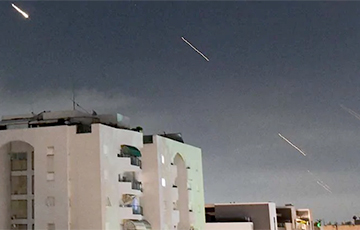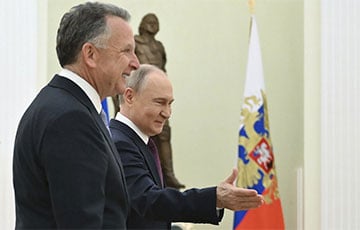Turning Point In Israel's History
- Anshel Pfeffer
- 15.04.2024, 11:43
- 6,880

What are the consequences of the Iranian air attack?
It can be seen as a phenomenal success of the Israeli strategy. Israel has invested in the development of missile defence systems for almost four decades. They defended the country by shooting down 99% of the drones and missiles launched by Iran and its proxies.
The fearsome Iranian arsenal has been weakened not only by Israeli technology, but also by an alliance of Western powers — the United States, Britain and France - working alongside Israel and friendly Arab nations. They overcame differences in the fight against a common enemy. Iran was humiliated and Israeli deterrence restored.
On the other hand, Iran is no longer deterred from striking Israel directly. No state has attacked Israel directly in the 33 years since Saddam Hussein's regime bombarded the country with Scud rockets during the Gulf War in 1991.
Now this taboo has been broken. Israel hoped that after the attack on the Iranian embassy in Damascus on April 1, Tehran would not change its custom – to act not directly, but through proxy forces.
Obviously, this was another mistake of Israeli intelligence.
Israel, which is proud of its ability to defend itself, needed help from the U.S. and other countries. Despite the successful intercepts, several Iranian missiles still broke through, including the one that hit the Nevatim airbase in the Negev. Although no serious damage has been done, Israel is still bogged down in the Gaza war, hostages are dying in captivity, and settlements on the northern border continue to be shelled by Hezbollah. Israel's deterrence ability has never been so ineffective.
However, the failure of an unprecedented Iranian attack is a turning point. Together with the Western powers and its Arab neighbors, Israel has proved that a coordinated response using a network of radars, various types of interceptor missiles and fighter jets can protect the country from a combined attack of ballistic and cruise missiles, as well as from a huge swarm of kamikaze drones.
This is an important milestone in the historical development of military technologies, which has global implications. Such multi-level defence can protect other countries – for example, Ukraine or Taiwan.
Another fundamental point is the coordination between Israel and its neighbors, which the United States has achieved at the regional level. For obvious reasons, Israeli leaders are now emphasizing the capabilities of their own defence systems. The U.S. is focused on how it has worked to protect Israel. But in fact, both elements were important.
The full details of how the Sunni Arab regimes helped defend Israel, no doubt saving Israeli lives from Iranian missiles and drones, may remain a mystery for some time to come. But this is a historic shift. It does not matter who is credited with the main merit: Yitzhak Rabin and Bill Clinton, who signed a peace agreement with Jordan in 1994, or Benjamin Netanyahu and Donald Trump, who signed the Abraham Accords. The result is the same. “Iranian Missile Night” was an important historical milestone.
Benny Gantz, the main “responsible adult” in the war cabinet today, deserves special praise. It was he who promoted the Middle East defence alliance of air defence forces. The night of the Iranian attack proved the correctness of this concept.
There is a conflict between Israel and Iran, and there is a conflict between Israel and Palestine, but the Arab nations – or at least their leaders – are working together with Israel.
The cooperation of Arab nations in countering the Iranian attack proves that there is still a tendency to create an Arab-American-Israeli alliance against Iran and its proxy forces in the region.
This is an opportunity to develop a nascent partnership and strengthen Israel's deterrence abilities. A minor result of the Iranian attack could be a strategic blow to the Tehran regime in case of strengthening of this alliance.
Now it is up to Israel to calibrate its imminent response and coordinate it with the Biden administration to avoid a regional conflict and minimize the consequences for those neighbors who are now our de facto allies.
To gradually allow them to cooperate more openly with Israel in the future and to withstand criticism within their countries for their lack of “solidarity” with the Palestinians, Israel's strategy should be to quickly end the war in Gaza as part of a broader hostage release agreement and implement UN Resolution 1701 in the north, pushing Hezbollah back from the Israeli-Lebanese border.
But in the context of Netanyahu's far-right ruling coalition, with his ministers' Pavlovian reflexes demanding an “immediate” invasion of Raifa (Bezalel Smotrich) and a “crushing” blow to Iran (Itamar Ben-Gvir), there is every chance that Israel will miss this opportunity.
Failure to take advantage of the support that Israel has just received from its neighbors means simply losing the historic chance to stand up against Iran in a much more effective front. If so, Iran will be able to win this strategic stage of the struggle.
Anshel Pfeffer, Detaly










